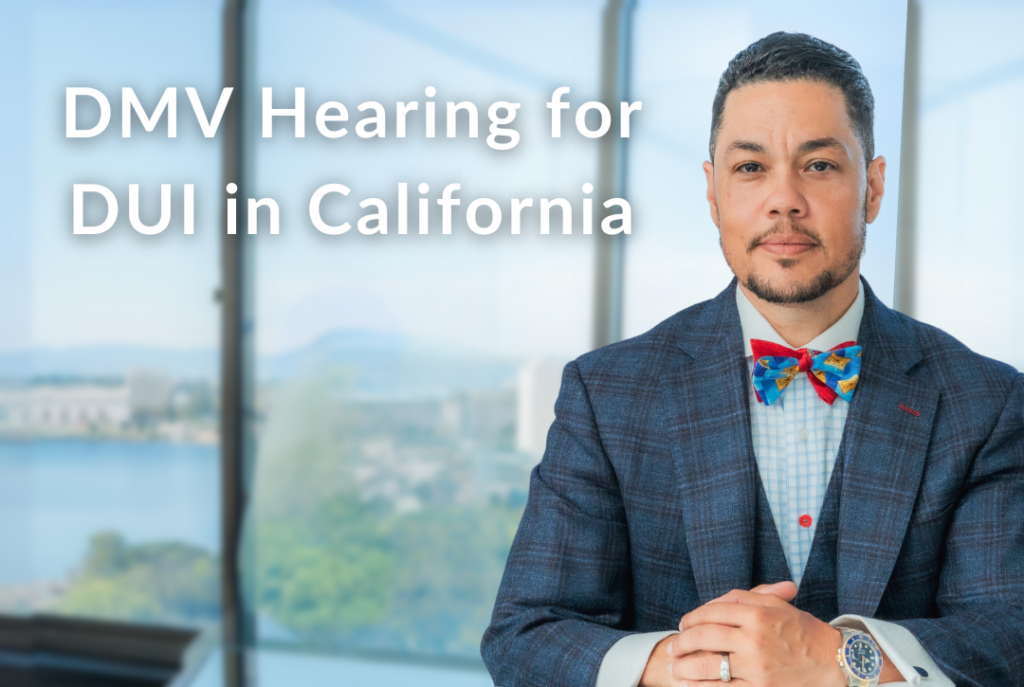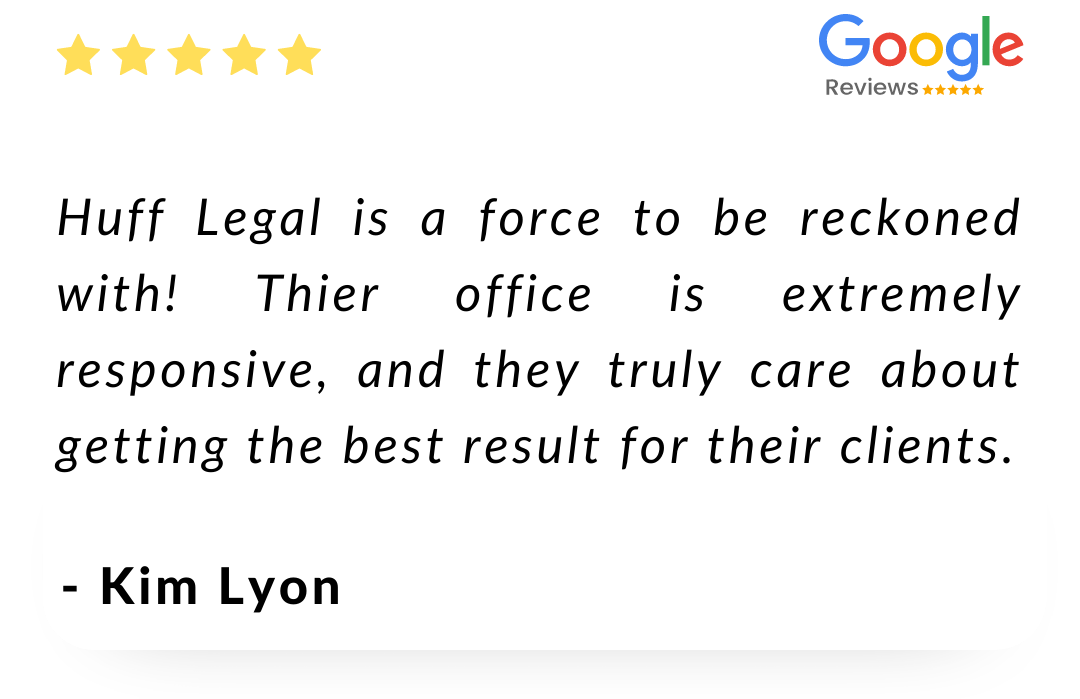Protect Your License at a California DUI DMV Hearing
DMV Hearing for DUI in California
A DMV hearing for DUI in California is a critical administrative process that occurs separately from your criminal case. The hearing can have significant consequences for your driving privileges, potentially resulting in the suspension or revocation of your license.
Many people underestimate the importance of this hearing or feel overwhelmed by the process, unsure of how to protect their rights effectively. Understanding the DMV hearing process is crucial for maintaining your ability to drive and can even influence the outcome of your DUI case.
In this article, we’ll guide you through the essentials of a DMV hearing for DUI in California, including what to expect, how to prepare, and why seeking legal representation can be beneficial.
What is a DMV DUI Hearing?
A DMV DUI hearing in California is an administrative procedure separate from your criminal case but can significantly impact your driving privileges. It’s your opportunity to prevent the Department of Motor Vehicles from suspending your license after a DUI arrest.
Here’s what you need to know:
- Purpose: The hearing determines whether the DMV will suspend or revoke your driver’s license.
- Setting: It takes place at a DMV office, not a courtroom.
- Who presides: A DMV hearing officer conducts the hearing. They’re not a judge or an attorney but a DMV employee.
How it Works
The process is similar to a mini-trial:
- Both you and the DMV present evidence.
- You have the right to be represented by a lawyer.
- The hearing officer makes a decision based on the evidence presented.
Request a Free Consultation
Potential Outcomes
If the hearing officer rules in your favor, your license suspension is set aside. If not, you face:
- Up to 4 months suspension for a first-time DUI
- Up to 1 year suspension for subsequent DUIs
It’s crucial to understand that these penalties are separate from any criminal court penalties. This means you could face consequences in both arenas for the same DUI incident.
California's 10-Day Rule
In California, you have a very limited window to act after a DUI arrest. This is known as the “10-Day Rule,” and it’s critical for protecting your driving privileges.
Key points about the 10-Day Rule:
- You have only ten days from the date of your arrest to request a DMV hearing.
- If you don’t request a hearing within this timeframe, your license will be automatically suspended after 30 days.
- The 10-day period includes weekends and holidays.
This Rule underscores the urgency of taking action quickly after a DUI arrest. Missing this deadline can result in automatic license suspension, regardless of the outcome of your criminal case.
How to Request a California DMV Hearing
Intent
Requesting a DMV hearing is a straightforward process, but it must be done correctly and within the 10-day timeframe. Here’s how to do it:
- Contact the DMV: Call the Driver Safety Office that handles your area. This information is on your temporary license or the DMV website.
- Provide Information: Be prepared to give:
- Your full name
- Driver’s license number
- Date of birth
- Date of arrest
- Arresting agency
- Choose Your Hearing Type: You can request:
- An in-person hearing
- A telephone hearing
- A hearing by written declaration
- Get Confirmation: Ask for a confirmation number or written confirmation of your request.
- Request a Stay: When requesting the hearing, ask for a “stay” on your license suspension. This allows you to continue driving until your hearing.
Remember, simply being arrested for DUI triggers this process. Even if you haven’t been convicted in criminal court, you still need to request this hearing to protect your driving privileges.
Preparing for Your DMV Hearing
Preparing for your DMV hearing is crucial to protect your driving privileges. A well-prepared approach can significantly improve your chances of a favorable outcome. Here’s how you can get ready:
Gathering Necessary Documentation
The first step in preparing for your DMV hearing is collecting all relevant documents. This includes:
- Your notice of suspension or revocation
- The police report from your arrest (if applicable)
- Any chemical test results
- Your driving record
- Witness statements (if available)
- Any evidence that supports your case
Make sure to organize these documents in a clear, logical order. This will help you present your case more effectively during the hearing.
Understanding the Hearing Process
Familiarizing yourself with the DMV hearing process can help reduce anxiety and improve your performance. Here’s what you can expect:
- Introduction: The hearing officer will explain the purpose of the hearing and your rights.
- Evidence presentation: Both you and the DMV will present evidence.
- Testimony: You’ll have the opportunity to testify and call witnesses.
- Questions: The hearing officer may ask questions to clarify information.
- Decision: The hearing officer will make a decision, often at a later date.
Remember, while less formal than a court trial, a DMV hearing is still a legal proceeding. Treat it with the seriousness it deserves.
Considering Legal Representation
While you’re not required to have an attorney for a DMV hearing, legal representation can be beneficial. An experienced DUI or traffic attorney can:
- Help you gather and present evidence effectively
- Cross-examine witnesses
- Identify potential legal issues in your case
- Argue on your behalf
If you’re facing serious consequences or feel overwhelmed by the process, consulting with an attorney might be a wise decision.
What Happens After the DMV Hearing?
After your DMV hearing, you’ll typically receive a decision within a few days to a few weeks. The outcome can be one of three possibilities:
- The action set aside: Your license suspension or revocation is canceled.
- Action sustained: The suspension or revocation is upheld.
- Modified action: The DMV may impose a lesser penalty or restrictions.
If the decision isn’t in your favor, you generally have the right to appeal. This usually involves requesting a departmental review or filing a petition with the superior court. Be aware that there are strict deadlines for appeals, often as short as 15 days from the decision date.

As Seen On












Types of DMV Hearings
The California DMV conducts various types of hearings, each addressing specific driving-related issues. Understanding the type of hearing you’re facing can help you prepare more effectively:
- Administrative Per Se (APS) Hearings: These are for DUI arrests, focusing on whether your license should be suspended due to a high BAC or test refusal.
- Negligent Operator Hearings: If you’ve accumulated too many points on your driving record, this hearing determines if your license should be restricted or revoked.
- Medical Condition Hearings: These assess whether medical conditions like seizures or vision problems affect your ability to drive safely.
- Reckless Driving Hearings: For incidents of reckless driving or excessive speeding, these hearings determine if your license should be suspended.
- Other Violations Hearings: Various traffic law violations, such as driving without insurance or leaving an accident scene, can trigger these hearings.
Each type of hearing has its own specific procedures and considerations. Knowing which type you’re facing allows you to tailor your preparation and strategy accordingly.
Get Expert Help with Your DMV Hearing for DUI
Navigating a DMV hearing for DUI in California can be complex and stressful, but understanding the process is crucial for protecting your driving privileges. Remember, the outcome of your DMV hearing can significantly impact your daily life and future opportunities.
At Huff Legal, we specialize in helping clients navigate DMV hearings for DUI cases in California. Our experienced attorneys understand the intricacies of DUI law and can provide the expert representation you need to protect your rights and driving privileges.
Don’t face your DMV hearing alone—contact Huff Legal today for a free consultation, and let us use our expertise to help you in your DUI hearing.
FAQ
How do you win a DUI DMV hearing in California?
To win a DUI DMV hearing in California, you need to challenge the evidence presented by the DMV. This can include questioning the legality of your stop, the accuracy of chemical tests, or the officer’s observations. Having an experienced DUI attorney represent you at the hearing can significantly improve your chances of success.
What happens at a DUI court hearing in California?
A DUI court hearing in California is separate from the DMV hearing and focuses on your criminal charges. During this hearing, the prosecution presents evidence, and you have the opportunity to defend yourself. The outcome can result in penalties such as fines, jail time, and mandatory DUI classes if you’re found guilty.
How long is your license suspended for DUI in California?
For a first-time DUI offense in California, your license can be suspended for four months. For a second offense within 10 years, the suspension can last up to 2 years. The length of suspension can vary based on factors such as prior offenses and whether you refused a chemical test.
What to do after DUI California DMV?
After a DUI arrest in California, you should request a DMV hearing within ten days to contest your license suspension. It’s advisable to consult with a DUI attorney immediately to understand your rights and options. You should also prepare for both your DMV hearing and criminal court proceedings.
What Clients Say About Us





Schedule Your Free Consultation Today
Contact a Bay Area Lawyer Today!
If you or someone you know is facing charges as an accessory to murder, it is crucial to consult with a qualified criminal defense attorney who can provide personalized legal advice based on the specific circumstances of the case. They can help navigate the legal process, protect your rights, and provide guidance on the potential penalties you may face.
Hiring a competent and knowledgeable criminal defense attorney in the San Francisco Bay Area who can represent you in court is essential to defending yourself and preserving your future. Our Bay Area Accessory to murder lawyers at Huff Legal can use various strategies for the best possible outcome of your case.
LET HUFF HELP YOU
As a former police officer and patrol supervisor and his time spent as a United States District Court Judicial Law Clerk to the Chief Judge, Attorney Huff knows how to navigate all levels of the complex criminal law system. We also have more than 55 years of combined experience dealing with various complex criminal legal matters and have helped just over 1,500 clients over the past few years.
Why Huff Is Your Best Option For Criminal Defense
55+ Years of Combined Experience
At Huff Legal, we have more than 55 years of combined experience dealing with complex criminal legal matters, which can oftentimes be quite challenging. In order to get the outcome you deserve, you need a team of experienced attorneys on your side, who can help you navigate the legal system, so you can move past this situation and focus on the life ahead of you!
5 Star Rating on Google
We have a proven track record of success and are dedicated to our clients’ best interests. If you’re looking for a law firm that will always have your back, look no further than Huff Legal. Just have a look at some of our amazing client reviews over here!
1,500+ Happy Clients
Over the years, we’ve had the privilege of helping over 1,500 clients with their legal needs. When you work with us, you can be confident that you’re getting the best possible legal representation. We’re proud of our track record and our reputation for being a firm that delivers great results.
What Our Clients Say About Us


Sheila


Abel Resendiz


Manuela Frazier


Doris
Contact Huff Today
Request A Free Consultation
* Free consultations only available for Criminal Defense


In legal terms, an accessory to murder refers to an individual who aids, abets, or otherwise assists in committing a murder. While the specifics may vary across jurisdictions, California law treats accessories to murder as active participants in the crime, holding them accountable for their actions. In San Francisco Bay Area, there are two primary types of accessories to murder:
In the event that you find yourself in the Bay Area facing accessory to murder charges, you should first call a criminal defense attorney who can help you defend your rights and lessen the effects of the investigation. Contact an attorney at Huff Legal as soon as possible following your arrest. An accomplished attorney from Huff Legal will thoroughly examine your case, who will then develop a strategy and build a defense.
